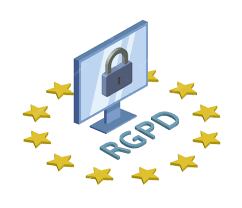The GDPR Process: Understanding and Applying Data Protection Rules
The General Data Protection Regulation (GDPR)) came into force in May 2018, creating a new regulatory framework for the protection of personal data in Europe. Businesses around the world must now comply with these strict rules to maintain the privacy and security of individuals' sensitive information. In this article, we will explore the GDPR process in detail, highlighting the key steps to comply with this regulation and the benefits it provides.
Understanding the fundamental principles of GDPR
The GDPR is based on a series of fundamental principles that guide the processing of personal data. It requires businesses to collect and process data lawfully, fairly, and transparently. Additionally, they must limit data collection to what is strictly necessary, store it securely and accurately, and delete it once it is no longer needed. Individuals also have enhanced rights under the GDPR, such as the right to access their data, the right to rectification, and the right to be forgotten.
Key steps to comply with the GDPR
- Risk and impact assessment: The first step is to assess the risks and potential impact of processing personal data. This helps determine the security measures needed to protect that data.
- Appoint a Data Protection Officer (DPO): Some organizations must appoint a DPO, who will be responsible for GDPR compliance and monitoring data protection issues.
- Transparent privacy policies: Companies should develop clear and accessible privacy policies, providing individuals with information about how their data is collected, used, and protected.
- Informed consent: The GDPR requires informed consent for the processing of personal data. Individuals must give their consent explicitly, and they also have the right to withdraw their consent at any time.
- Security and Privacy Measures: Companies must implement appropriate security measures to protect personal data, such as encryption, two-factor authentication, and pseudonymization.
- Data Breach Management: Organizations must be prepared to respond to a personal data breach, notifying the relevant authorities as quickly as possible and informing affected individuals if necessary.

The benefits of GDPR compliance
There GDPR compliance GDPR compliance has many benefits for businesses. First, it builds customer trust, as they know their data is protected and handled responsibly. It also helps avoid the hefty fines that can be imposed for non-compliance, which can be as high as €20 million or €4 billion of global annual revenue, whichever is higher. By complying with the GDPR, businesses can avoid these financial penalties and preserve their reputation.
Additionally, GDPR compliance promotes operational efficiency. By establishing clear and consistent processes for data collection, processing, and retention, businesses can streamline their operations and improve their information management.
Finally, GDPR compliance can be an opportunity for market differentiation. Companies that demonstrate transparency and respect for privacy gain consumer trust, which can translate into increased loyalty and a better reputation.

The process of GDPR compliance is essential to ensuring the protection of personal data in a constantly evolving digital world. By understanding the fundamental principles of the GDPR and following key steps, businesses can secure sensitive information, build customer trust, and avoid financial penalties. GDPR compliance is an opportunity to promote a culture of privacy and position yourself as a responsible player in the market.
